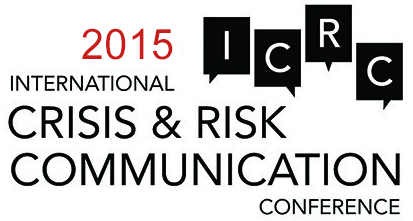
Principal Administrative Officer and Editor in Crisis Communication
Swedish Civil Contingencies Agency
Sweden
Henrik Olinder, Principal Administrative Officer and Editor in Crisis Communication at the Swedish Civil Contingencies Agency (MSB). At the time he is a Seconded National Expert in Risk- and Crisis Communication at the European Centre for Disease Prevention and Control (ECDC).
At MSB he implements Crisis Communication training for communication officers at local and national levels of government. It includes advising government agencies in crisis. He is responsible for editing research reports, methodologi and funding of research.
At the time he is working with Risk- and Crisis Communication within ECDC. His job is to conduct similar editorial work and do training that he has done for more than 14 years for Swedish authorities, and now in a European environment.
He is a member of the board for the Swedish Association of Communication Professionals. He is Co-author to a book about Rhetorical Images in Journalism. Henrik makes films in the field of Crisis and Risks.
2014
Breakout Session: The Mechanisms and Effects of Communication
In this presentation, a number of different cases will be presented where various leaders and organizations has been communicating actively or chosen not do it. There are obviously good and bad examples we can draw useful experiences from. Meanwhile, mechanisms and effects of communication can be lifted up and discussed. But we are not able to control mechanisms and effects during a crisis situation or when a scandal must be sorted out. But we can learn from experiences and there are issues that we can minimize the damage. There is also a large part of drama in the way communication is handled during a crisis or a scandal. Some of the cases are entertaining, not for everyone but for many of us.
The unprepared leader and their staff know little about the mechanisms or effects in the field of communication and management of a crisis. Several experiences from such situations have been painful for citizens and society in many cases. In Sweden, in the Nordic countries, and in Europe there are several examples that were interesting when stakeholders act together, and vice versa. In some cases the work of preparedness has been too extensive or to well managed.
The human impact on how we deal with planning for a coming crisis, emergency or scandal can be a dilemma. Educating, exercising and do research on the area of risk and crisis communications and other related areas of preparedness is important to get better knowledge. These questions will appear on the agenda.


